THOMASIANS slammed the plan of the Department of the Interior and Local Governance (DILG) and Sen. Ronald “Bato” Dela Rosa to beef up police and military presence in universities to mitigate “communist recruitment.”
Interior Secretary Eduardo Año also wants to reinstate the Anti-Subversion Law, following a
public hearing headed by Dela Rosa on the concerns of parents over the alleged disappearence of university students believed to have been recruited by groups linked to
communist rebels.
Año cited Executive Order (EO) 70, which formed the National Task Force to End Local Communist Armed Conflict (NATF-ELCAC) that “invokes police presence in schools.”
Robert Dominic Gonzales, Central Student Council (CSC) president, denounced the proposal and said leftist groups should not be labelled as affiliated with the New Peoples’ Army (NPA).
“They are called leftist groups because they have leftist principles not necessarily part of the NPA…[The government] is doing this for their own agenda, not to protect the people,” Gonzales told the Varsitarian.
Gonzales said no militarization would take place in the University. He vowed to ensure the safety of student activists within the campus.
“I’ve consulted with several administrators, our campus is safe, our campus doesn’t need any military men, there are no instances of violence inside our campus, wala namang threats inside the campus…We really don’t need any militarization inside,” he said.
For Rabin Bote, Student Organization Coordinating Council (SOCC) secretary, police and military presence would put students in more peril.
“Police presence in the University will act as an extended arm of the government inside campuses to suppress dissent and wrongfully tag progressive students and organizations as
terrorist forms,” he said.
In a Martial law and human rights forum, UST Vice Rector for Religious Affairs Rev. Fr. Pablo Tiong, O.P. said there is no real threat within the University in need of military presence.
Tiong said that these proposals should be reconsidered and that is peace and order was the only concern, cooperation should be with the national police, not the military.
“If there will be an actual or perceived threat, there is nothing wrong with additional protection, but how we wish that it should be the national police…The military is for external threats, we would not like that there would be unreasonable sources of anxiety and fear,” he said.
In October last year, UST was included in a list released by the military of universities and colleges deemed as communist recruitment grounds.
University officials Secretary General Fr. Jesus Miranda Jr., O.P. and former Simbahayan Director Mark Anthony Abenir slammed the inclusion of the University in the military list.
‘Defend academic freedom’
In a statement, Año said the DILG wanted to conduct dialogues with schools to raise awareness against leftist recruitment.
Año, a retired military general, claimed that 500 to 1,000 Filipino youths were “recruited” by communist-linked groups annually.
For Kurt Dynel Malaca, student activist from Samahan ng Progresibong Kabataan-UST, the
intervention of authorities in the University threatens academic freedom and puts students
and professors at risk of red-tagging.
“UST students and professors are engaged in different fields of research and advocacies that the military labels as ‘terrorist,’” he told the Varsitarian.
He said students who join progressive youth groups and professors who conduct research on indigenous people and activism would be at risk of harassment.
Malaca called on UST to assert its academic freedom, as it should be autonomous from state influence.
“UST is a haven for political discourse and holistic learning. The intervention of the military in its affairs must be met with the strongest possible resistance,” he said.
League of Filipino Students-UST spokeswoman Trisha Ifurung said the real agenda of putting state forces in campuses and reinstating the Anti-Subversion law was to silence the administration’s critics.
RA 1700, also known as the “Anti-Subversion Act,” was enacted under President Carlos Garcia at the height of the Huk rebellion in 1957. It punished mere affiliation and membership with the Communist Party of the Party of the Philippines.
Three decades after its enactment, the Anti-Subversion Law was repealed through RA 7636 in 1992 under President Fidel Ramos.
If the law is reinstated, “anyone in their eyes could be tagged as communists…it is inciting harm to our safety, dahil sa gobyerno, sino mang magsalita o mag-batikos sa estado ay
terorista o NPA rebel,” Ifurung said.
Ifurung said joining progressive youth groups did not mean affiliating with NPA.
“Kung mayroon mang piniling mamundok at maging miyembro ng NPA ‘yun ay sariling kapasyahan ng tao, kaming mga aktibista labas kami sa ganoon,” she said.
“Kami ay nagpro-protesta lamang…Kami ay nag-aaral para gamitin ang kaalaman na ito para sa ikauunlad ng ating bayan.”
She called on the UST administration to protect and defend its students by speaking out and releasing statements against the proposed measures.
Bote emphasized that the SOCC, the council that oversees the University’s student organizations, was supportive of the fight of student organizations for their rights without the fear of repression by the state.
“[The SOCC] strives to protect all student organizations and its particular interests, and it will not allow any entity to malign advocacies of student organizations,” Bote said.
The proposed measures led to public backlash, walk-outs and protests in universities.
On Aug. 21, professors from various universities including UST denounced the proposed deployment of state forces in a press conference at the University of the Philippines Diliman.
Dennis Coronacion, chairman of UST’s Department of Political Science, said sending state forces to schools was not the right approach to address the issue of leftist recruitment.
“University professors play a big role in enlightening [students] and protecting them…Don’t
give threats, that’s not the right way to do it. The right way to do it is to engage [students] in discussions, debates,” he said.
‘Whole-of-nation approach’
In 2018, President Rodrigo Duterte signed EO 70 “institutionalizing the “Whole-of-Nation” approach in ending the “local communist armed conflict,” and formed the NATF-ELCAC.
The “approach” involves coordination between national government agencies and local
governments under a “National Peace Framework.”
The task force is composed of Cabinet members, two representatives from the private sector, the national security adviser as vice chairman and the president as chairman.
Education Secretary Leonor Briones, a member of the task force, implemented the EO by suspending 55 Salugpungan Ta’ Tanu Igkanogon (Salugpungan) tribal schools in Mindanao because of alleged ties with communist rebels.


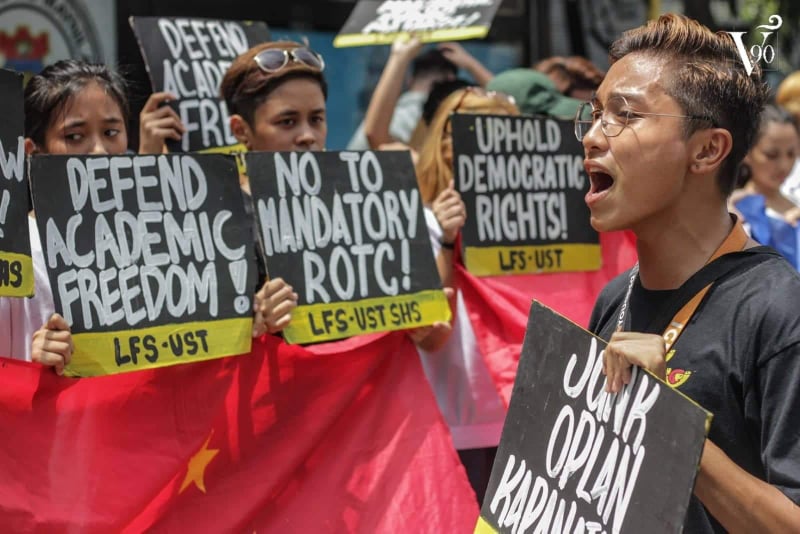








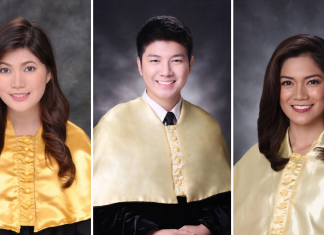

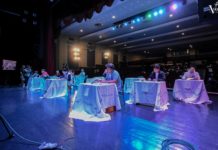

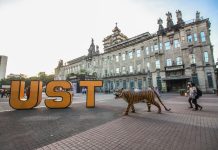
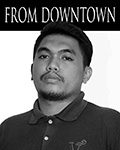



A handful of dimwitted pseudo-intellectuals and it is suppose be “UST”. The pontifical,royal university has become as liberal as their anti-pope Francis and the Bourbon usurpers ,pathetic shadow of its former self and now as ridiculous as those in the Ateneo Ng Kadiliman…..
Soldiering is not for everyone. Wag ipilit sa mga ayaw.